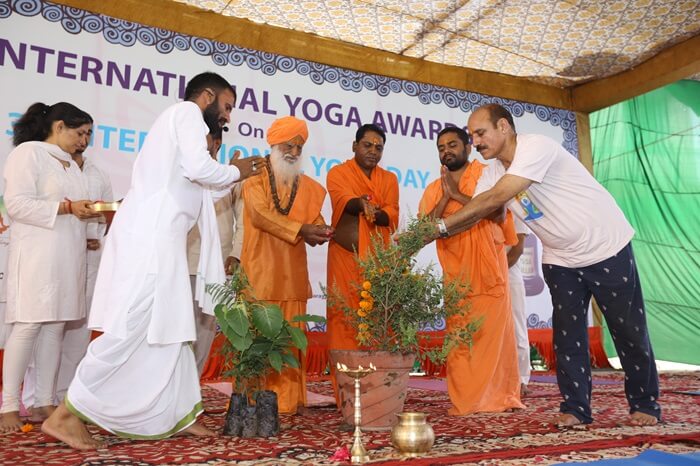The Philosophy of Yoga: A Path to Transformation
Yoga, meaning ‘Yoking’ or ‘Union,’ is one of the six systems (darshans) of Indian Yoga Philosophy. It has gained immense popularity worldwide, offering profound physical and mental benefits. Yoga transforms practitioners by expanding their awareness beyond ordinary perceptions, revealing the connection between the individual self and universal energy.
Create a Union Between Body, Mind, and Spirit
The philosophy of Yoga is a roadmap for personal transformation, guided by the art and science of Yoga. References to Yoga Philosophy date back to the first millennium B.C.E.

Philosophy of Samkhya
In Yoga, practical aspects often take precedence over intellectual content. According to this philosophy, spiritual awakening is inspired by the existence of a higher power. Moksha, or spiritual upliftment, is achieved when the soul gains freedom from worldly desires and material bondage, attaining purity and consciousness.
Philosophy of Yoga
Yoga philosophy serves as a bridge connecting the heart, brain, and soul. It encourages the development of deep philosophical ideas and self-awareness. Meditation, a core aspect of Yoga, calms the mind, clarifies thought, and helps open blocked channels. Embrace positive nature and release negativity to let truth flow through you.
Exploring Inner Realms
Exploring your inner world can reveal insights beyond conventional understanding. While ignorance may seem blissful, true wisdom often requires courage and exploration. Renowned figures who embraced this journey often did so fearlessly, uncovering profound truths.

Yamas and Niyamas
Yoga philosophy promotes balance and harmony through the ethical principles of Yamas and Niyamas, as described by Patanjali. These principles guide personal behavior and universal morality, offering a blueprint for managing restlessness and fostering mental well-being.
- Yamas and Niyamas: Ethical and moral guidelines to improve behavior and interactions.
- Asanas: Yoga postures for physical health.
- Pranayama: Deep breathing exercises for energy control.
- Dharana: Concentration practices.
- Dhyana: Meditation for inner peace.
- Pratyahara: Withdrawal of the senses.
- Samadhi: Union with ultimate consciousness.
The Eight Limbs of Yoga
The practice of Yoga is outlined in eight stages, with the first five being external aids and the remaining three focusing on internal or mental aspects. The early 20th century saw Yoga philosophy and practice gain popularity in the West, with the establishment of organizations like the Self-Realization Fellowship by Paramahansa Yogananda in 1920.

Improve Your Well-Being
Cleanse your body and mind through Yoga practices. Detoxify, adopt a yogic lifestyle, and nurture kindness. Yoga philosophy encourages purity, both internally and externally, protecting against negative emotions like hatred, anxiety, and pride. Create a supportive environment that aligns with your aura.
Embrace Self-Discipline and Gratitude
Self-discipline, contentment, and gratitude can lead to profound personal growth, far beyond conventional achievements. In today’s world, where physical and mental disorders are prevalent, Yoga offers a path to rejuvenation and balance. Even if you are skeptical about spiritual concepts, your interest in Yoga philosophy is a step towards personal enrichment.
Conclusion
Yoga Philosophy provides a transformative path to achieving balance and enlightenment. By understanding and integrating its principles, you can foster a harmonious connection between body, mind, and spirit. Whether you’re interested in deepening your practice or exploring Yoga for the first time, our Yoga Teacher Training in India offers a comprehensive experience to support your journey. Discover more about our 200 Hours Yoga Teacher Training in India or 300 Hour Yoga Teacher Training in India to further your practice. Additionally, explore our Ayurveda Retreat in India and Yoga Retreat in India for a holistic wellness experience.
















